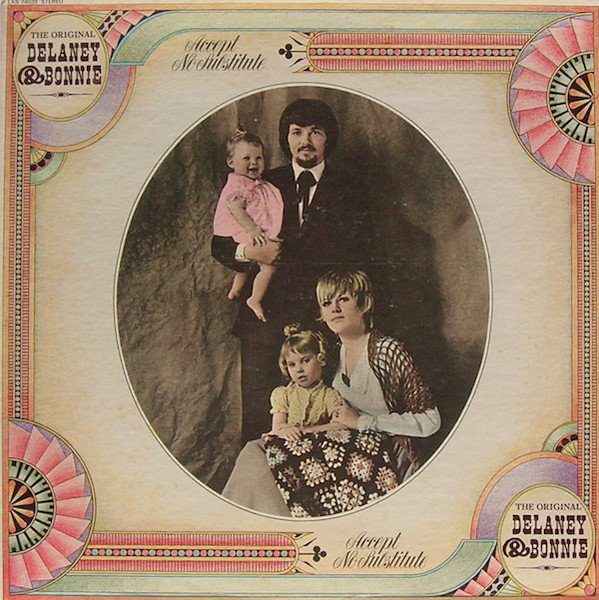-

In our last episode, Joe Cocker had just fired the members of his Grease band after recording his newest album, Cocker! His manager, Dee Anthony, was looking forward to returning to the U.S. to promote the highly anticipated album that featured Cocker originals and unreleased Beatles songs.
-

Somewhere between the release of the album Accept No Substitute in July of 1969 and November of that year, Elton John began working on his second album. After the lackluster debut of Empty Sky, Elton made his mark with his self-titled second album, Elton John, featuring the tune “Your Song,” a beautiful ballad that remains…
-

Last we heard, producer David Anderle and recording engineer John Haeny had given British producer Glyn Johns a test pressing of Delaney & Bonnie’s new album, Accept No Substitute, which wound up in the hands (and ears) of George Harrison.
-

Last you heard from me, husband-and-wife singing duo Delaney & Bonnie were working on their album Home, their first recording on the Memphis-based Stax label, between February and November of 1968. The general idea in the minds of the Stax executives was to create an album that would introduce the world to the “first white…
-

Born in Barnwell, South Carolina, James Brown had to hustle his way up and out from extreme poverty. Partly raised by a mostly-absent mother and abusive father-husband, young Brown bore the brunt of a rough, tough childhood, shining shoes for less than a dime, and living with one of his aunts in a brothel; his…
-

In an earlier piece, I spoke about sharing with you, dear reader, a three-part homage to one of the biggest musical influences in my young life in Chicago—Booker T. & the M.G.’s. In Part 1, I touched on the first pair of tunes from the band that grabbed my attention and affected me for the…
-

A 12-year-old kid is at a local Woolworth’s store on Ashland Avenue on the South Side of Chicago. It’s the early ‘70s, and he’s spending his few allowance dollars on cheap “cut-out” vinyl albums, shelved at the front end of the checkout counter, neatly tiered, four rows high and ten albums deep. That twelve-year-old was…
-

Blues migrated towards the urban centres, along its way electrifying guitars and gigs, as black musicians fleeing southern racial segregation strived for more economic opportunities and a better life in places like Detroit, Chicago, and New York City.
-

I was born in the ‘60s, a decade when records and radio waves were in perfect sync. You could hear every kind of music, at any time of day or night; all you had to do was cruise up and down the AM dial. We had a station in Chicago—WVON—that played great urban music. My…



